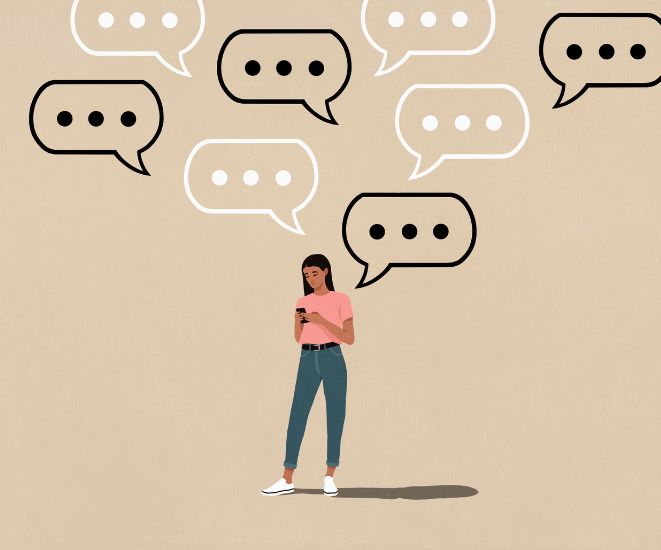Say Hello with Confidence
Caption phones for seniors can be a lifesaver, especially for those with mild to severe hearing loss. Sometimes, even those with hearing aids can struggle to understand phone conversations, and relying on reading can help provide clarity in communication. If you're in the market for a caption phone, here are our top three picks.
1. Hamilton CapTel 2400iSPNBT Captioned Telephone
The Hamilton CapTel 2400i is an extremely popular caption phone for seniors as it offers a large touchscreen display, it’s Wi-Fi capable, has an answering machine and speakerphone, an intuitive interface and adjustable volume control.
Pros
- This model features a large, clear and backlit touchscreen display which is ideal for seniors who may also have low vision. It also has audio amplification – up to 40 dB for users who are hearing impaired.
- It includes useful tools like dial-by-photo, speed dials, Caller ID, customizable fonts and a Bluetooth speaker phone.
- Real-time captioning and a built-in answering machine will also make life easier for seniors.
Cons
- Unfortunately, this caption phone involves a few complicated initial setup steps, so you’d have to be tech-savvy to get it ready to use.
- This device is only permitted to be used by registered hearing-impaired users and some people are a little cautious about sharing information via caption services. Operators are tightly regulated, however.
- It needs Ethernet or Wi-Fi to function and it has been known that with a poor internet connection, the captions may lag which can be rather annoying.
- Some seniors struggle with visual impairments and are also not used to the new smartphone touchscreen devices, so a touchscreen may not be the right choice for some seniors.
2. CapTel 840PLUS Captioned Telephone
CapTel (by Ultratec) 840PLUS offers captions that are provided by a free service that connects to the call. This is a telephone service device and offers adjustable font sizes and colors with a built-in answering machine.
Pros
- This phone operates with a standard analog phone line, so there is no need for internet which is very helpful.
- The large adjustable display on a caption window that can tilt is perfect for people with hearing as well as visual impairments. The font size and colors are also adjustable, making it as clear to read as possible.
- This device also features a built-in answering machine with captioned playback, tactile buttons, speed dials for up to 95 contacts and a very simple interface, making it easy for seniors to use.
Cons
- Before entering the user’s number, the incoming callers first need to dial the caption service number and this can be confusing and awkward.
- Some newer models like the 840i and the 2400i do have more features, which this model doesn’t.
- For instance, there is no touchscreen, app integration or internet-based captioning.
- Unfortunately, this phone requires a dedicated analog phone line, which is not compatible with digital cable lines or VOIP unless it’s switched manually. There is also limited availability in some states.
3. Hamilton CapTel 880i
The Hamilton CapTel 880i is another great option for seniors with both hearing and visual impairments, as it offers an extra-large display, a built-in answering machine, a speakerphone and conventional buttons for menu navigation.
Pros
- The touchscreen with traditional buttons combines a modern large screen with familiar button-based inputs, which can suit different user preferences.
- The captions appear seamlessly without dialing extra steps and it also includes the built-in answering machine and speakerphone.
- The extra-large display and higher contrast are always a winner for seniors who are also visually impaired.
Cons
- This device does require high-speed internet with consistent Wi-Fi, as poor connectivity can affect the caption speed and accuracy.
- For some seniors, the combination of traditional buttons and a touchscreen can be a bit confusing, so this feature is up to what the user will be most comfortable with.
- Many caption phones are available to qualifying seniors free of charge, but this particular model is only available commercially.
Final Notes
Caption phones for seniors can be extremely helpful for people with hearing loss as well as visual impairments. The amplified sound makes for better clarity on the line and many of these devices have very simple controls with familiar button layouts, making it easy to use. Caption phones are ideal for home use and make it possible to stay in touch with family and friends, which helps improve mental health and wellbeing. People's confidence and independence is improved when they don't have to continuously ask the caller to repeat themselves.
All of these caption phones for seniors are secure and private. Get ready for easier calls and staying connected!
